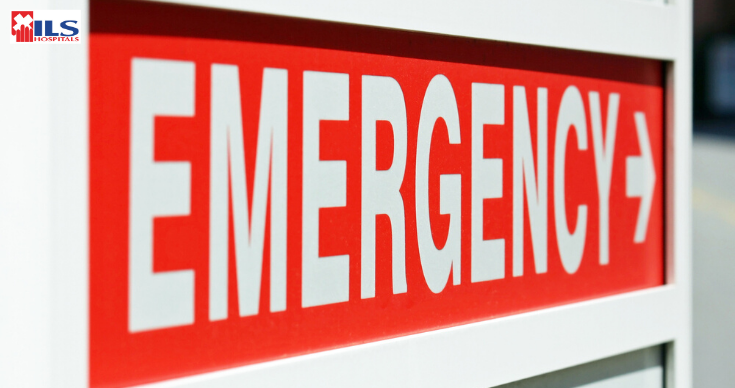How To Handle A Medical Emergency Effectively
A medical emergency is a serious condition that requires immediate medical supervision or else it can cause serious harm or injury to the affected person. Few examples of a medical emergency are burns, poisoning, injuries, bleeding, shock, strokes, severe allergic reactions and so on.
Not everyone knows what to do in case of a medical emergency, so ILS Hospitals, one of the best hospitals in Agartala and Kolkata will tell you how to handle a medical emergency effectively.
So without adding anything else, let’s continue further.
Stay Calm And Composed
Medical emergency is an alarming situation and can make people anxious. First and foremost thing to do during a medical emergency is to have a calm and composed demeanour until help arrives. Take deep breaths to calm your nerves and get relief from anxiety.
Call Medical Emergency Services At Once
Help takes time to arrive. So, whenever you notice someone in need of urgent medical supervision, call your local hospital for an ambulance without any delay.
Always Carry A First Aid Kit
First aid kit should be inside every home, school, college, office and any other organisations. You should even keep a small medical toolbox inside your car and backpack. Provide first aid to the patient to avoid any further damage.
Give CPR To The Patient
If the patient does not breathe despite a pulse then perform a CPR (Cardio-Pulmonary Resuscitation) or tell someone else to perform one if you do not know the CPR procedure. Ensure that the patient’s airway is not restricted by removing the patient’s tight clothing. Remember, it’s an emergency so you need to do things as required.
Always help people in need of medical emergencies whether you know them or not. For any medical emergency, you can visit ILS Hospitals, one of the best hospitals in Kolkata and Agartala.
When To Seek Medical Treatment For Food Poisoning
Are you feeling severe stomach cramps with nausea and vomiting? Are you rushing to the washroom every 2 minutes? Did you have something for dinner or even lunch or breakfast which could be contaminated? Could be, that you are suffering from food poisoning. It might sound funny to many individuals, but severe food poisoning is also considered as a medical emergency. The word ‘medical emergency’ casts impressions of – elderly man being carried in an ambulance due to heart attack or a punk youth taken to the ER due to road accidents, but it is a much broader scope.
Read more – Symptoms of Cardiac Emergency
It is true that you can treat minor to mild food poisoning with home remedies, adequate rest and over the counter drugs, but you need immediate medical attention to address if it is severe.
Food poisoning is a foodborne condition which occurs when you consume contaminated food or water. The severity and symptoms vary depending upon your immunity, strength and the pathogen you got infected with. Usually, it starts within a few hours after you eat the contaminated food, but it can also take a few days to weeks in some cases. The symptoms you will usually feel are nausea, vomiting, fever, fatigue, dehydration, dry mouth, lose motion etc.
However, in case you have symptoms such as feeling disoriented, dizziness, low blood pressure, high fever with chills, palpitations, breathing trouble, severe vomiting/diarrhoea, hazy vision, blood in vomit or stool, loss of urination, dark-coloured urine along with severe cramps, then you are going through severe food poisoning. If it is not addressed timely, it may cause a life-threatening crisis such as severe dehydration or even an organ damage.
After your preliminary check-up, your doctor will determine the exact treatment approach. Ideally, you will have to receive IV fluids and electrolytes along with antibiotics to boost your body functions. Moreover, the doctors will keep a close eye on the condition of the body temperature, blood pressure, kidney and nerve functions.
Needless to say, a timely cure will ensure proper recovery with no long-term complications. So, if you or any of your loved one is showing symptoms of the same, get in touch with our ER team and ensure your health and recovery.
The cases of food poisoning are quite common during the monsoon. You are hereby, recommended to avoid untreated water, unwashed food, raw or poorly cooked food, pre-cut fruits/vegetables, roadside food etc, particularly during monsoon.












